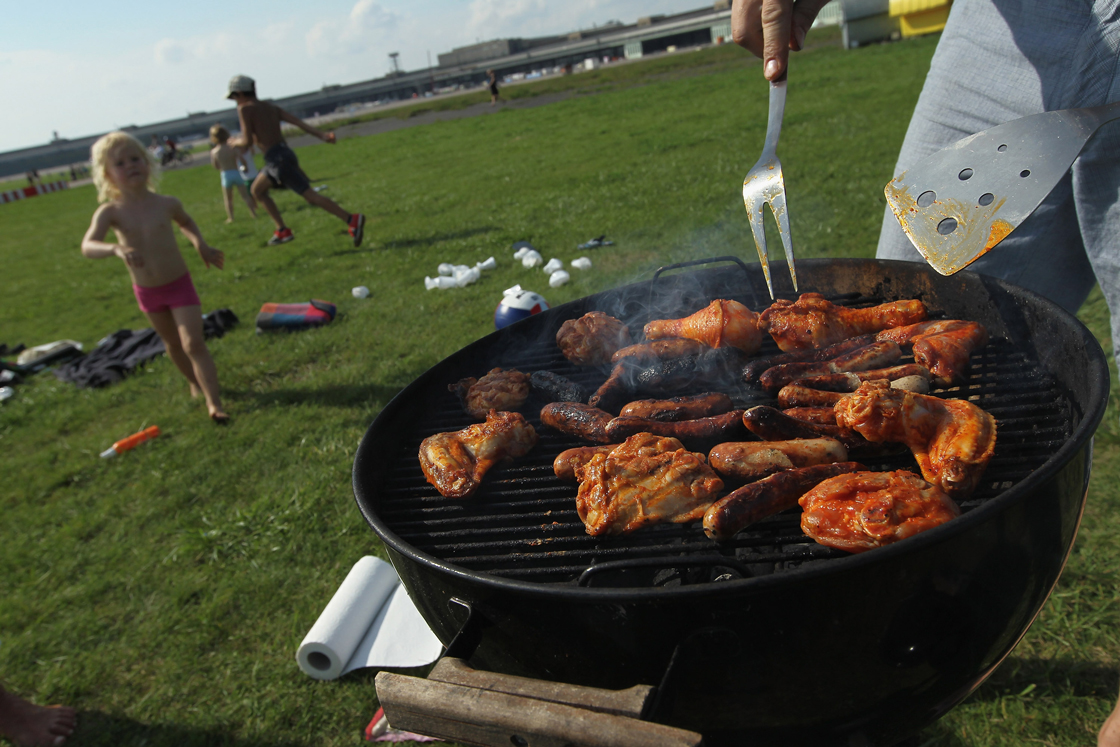Barbecuing is turning into something of a luxury this summer, as meat prices surge at the grocery store.

Statistics Canada said Friday the average retail cost on several cuts of beef was up more than 10 per cent, while pork prices spiked more than 12 per cent between May and the start of the year.
By individual cut, the price hikes in May versus a year earlier are even greater.
A sirloin steak cost consumers 16.7 per cent more last month compared to May 2013, while a pork chop is up 19.1 per cent.
Bacon is even wrapped up in the hyper inflation overtaking meat prices, with the cost for 500 grams rising by 20.5 per cent, according to StatsCan data.
Opting for veggie-laden kebobs over souvlaki won’t save you much – fruit and vegetable prices were up more than eight per cent in May compared to last spring, as well.
Those price hikes are significantly higher than the overall inflation rate, with Statscan saying Friday consumer prices broadly ticked 2.3 per cent higher in May.
Culprits

Get weekly money news
The culprits behind the rise in fresh food prices this year are plentiful.
The loonie’s swan dive since the fall has raised costs for everything Canadians purchase that is priced in higher-valued currencies, like U.S. dollars. That’s as true for businesses as it is for consumers.
Canadian supermarket owners who must purchase meat and produce priced in U.S. dollars are absorbing some of the hit, but when their wholesale costs go up, shoppers eventually feel it on the retail side.
The loonie has fallen to below 90 cents US at times in recent months, shaving off more than 10 per cent of its value at times. It’s back up to about 93 cents US at the moment, but that’s still well below levels a year ago.
The currency swing is also a major reason why gas prices have climbed higher in Canada than in the U.S. – and are expected to remain high through the summer.
READ MORE: Here’s how much more we’re paying for gas than Americans
There are also well-documented supply issues with beef and pork this spring.
Cattle herds in the United States entered 2014 at multi-decade low numbers, while a deadly disease known called PED (Porcine Epidemic Diarrhea) has decimated pig stocks in the U.S., pushing up prices across North America.
Cluck-cluck
What’s a barbecue host to do, then?
Buy chicken. In stark contrast to the big rise in beef and pork, a kilogram of chicken rose a modest 0.7 per cent in May, Statscan said.
READ MORE: Chicken looks appetizing as beef, pork prices surge
Chicken’s tempered rise alongside relatively tame gains among other food products – like the 0.9 per cent rise in partly skimmed milk and flat price growth for bread – helped keep food price inflation in check.
In all, the run-up in meat and vegetables pushed overall food price inflation to 2.3 per cent in May, in line with the headline gain in the consumer price index.








Comments
Want to discuss? Please read our Commenting Policy first.